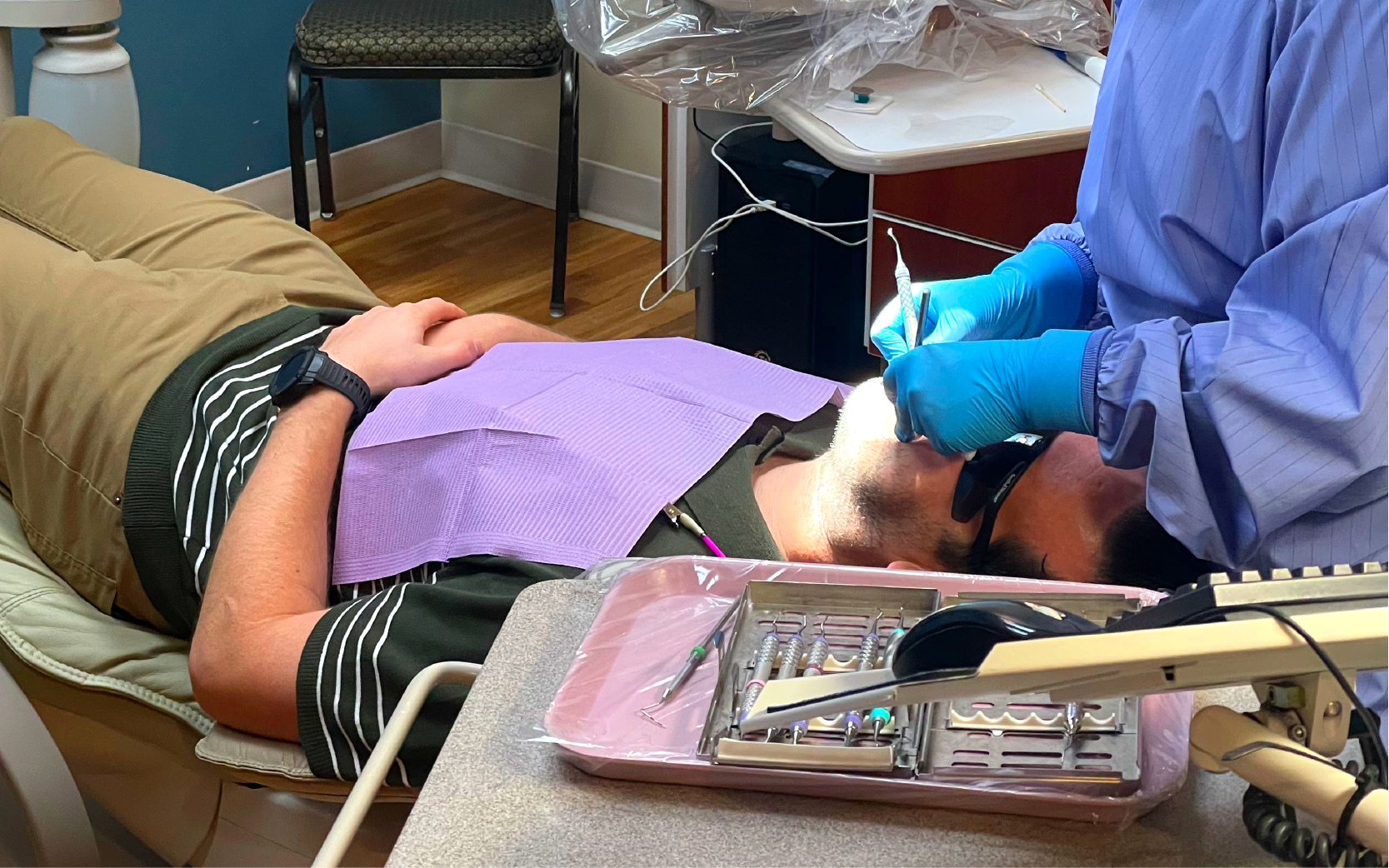About Endodontics
At Padden Dental in Vancouver, we offer expert root canal therapy, also known as endodontic treatment, to save infected or damaged teeth and restore your comfort. A root canal is a common procedure to address deep cavities or trauma that affect the tooth’s nerve, helping you maintain your natural s in mile without pain.
When Do You Need a Root Canal?
- You may need a root canal if you experience:
- A cracked, chipped, or traumatized tooth.
- A deep cavity extending into the tooth’s nerve.
- A crack beneath an existing dental filling.
- Frequent dental procedures on the same tooth.
- Watch for these symptoms, which may indicate the need for endodontic treatment:
- Increased sensitivity to hot, cold, or chewing, with lingering discomfort.
- Persistent tooth pain or aches radiating to the jaw, especially at night.
- Swelling or a pimple-like abscess on the gums near the tooth, signaling infection.
If you notice these signs, contact Padden Dental for a thorough evaluation to determine if a root canal is right for you.
Root Canals at Padden Dental
Our skilled dentists use advanced technology and personalized care to ensure a comfortable root canal experience. Here’s what to expect:
- Diagnosis: We use traditional digital radiographs and sometimes 3D X-ray technology to assess the tooth’s nerve canals and detect any infection in the surrounding bone.
- Anesthesia: A local anesthetic numbs the area for pain-free treatment. If an abscess prevents effective numbing, we may prescribe antibiotics to manage infection before proceeding.
- Treatment: We remove decay and damaged nerve tissue, disinfect the tooth with a specialized solution, and seal the canals with a biocompatible filling material to promote healing.
- Restoration: After the root canal, we restore the tooth with a same-day permanent crown to protect it and restore full function, eliminating the need for a temporary crown or additional appointments.
In some cases, longstanding infections may cause the tooth’s nerve canals to calcify, making treatment more complex. If needed, we may complete the root canal over two appointments, placing antibacterial medication and a temporary filling to ensure thorough cleaning before final sealing.
For complex cases requiring advanced expertise, we’ll refer you to a trusted endodontist—a dental specialist with additional training in root canal therapy. After treatment, you’ll return to Padden Dental for final restoration, such as a crown, to protect your tooth.
Why Restore with a Crown?
A root canal relieves pain and infection, but the treated tooth remains vulnerable due to prior damage such as, deep cavities or cracks. A dental crown is essential to:
- Restore chewing function.
- Protect the tooth from future fractures.
- Ensure long-term durability.
At Padden Dental, our same-day crown technology allows us to craft and place permanent crowns in a single visit, saving you time and ensuring a seamless experience.
Schedule Your Root Canal Consultation
Don’t let tooth pain disrupt your life. Trust Padden Dental in Vancouver for expert root canal therapy and same-day crowns to restore your smile.
Contact us today to schedule your appointment and get back to pain-free living!
FAQs About Root Canals
Q: Why is a crown needed after a root canal?
A crown protects the treated tooth, which may be weakened by prior damage. It restores function and prevents fractures that could lead to tooth loss. Our same-day crowns offer convenience and lasting protection.
Q: Is a root canal painful?
With modern anesthesia and techniques, root canals are typically comfortable. Our team prioritizes your comfort, and we’ll address any concerns to ensure a positive experience.
Notes
It is important to note that sometimes a longstanding infection can cause the tooth nerve canals to calcify or harden, which makes them more difficult to clean. In these cases, the root canal treatment may be completed over two appointments. The dentist will place antibacterial medication inside the tooth and place a temporary filling in the tooth to prevent food or saliva contamination. At the second appointment the tooth will be disinfected again and the treatment will be completed as stated in the steps above.
For very complex cases, you may receive a referral to an Endodontist (a root canal dentist). An Endodontist has two additional years of specialized training to provide advanced endodontic treatment. Once the treatment is completed with the Endodontist you will return to our office to further restore and protect the tooth.
Contact us for an appointment or to discuss what treatment is right for you.


